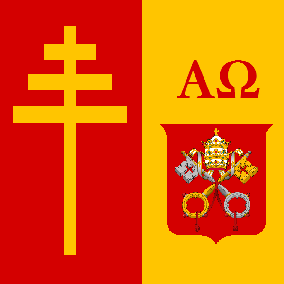Cryptographic Privacy Act Public Draft 4
Category : Human Rights
Strength : Significant
The World Assembly,
NOTICING the usage of cryptography in many member nations as well as its unparalleled importance in regards to the privacy of data, and
RECOGNIZING that all member nations do not possess the same level of information technology, which may be subject to relatively fast and advanced changes that could potentially introduce unforeseen ways of engaging in criminality and warfare, but
REAFFIRMING the concern that this assembly has already professed in regards to privacy, as expressed in GAR#213 Privacy Protection Act, and
ADMITTING that, for the good of their population and, more generally, in their own interest, member nations may need to attempt bypassing encryption, but
CONDEMNING how some governments do not hesitate to undermine the trust that people all around the world may have in cryptography by forcing the implementation of backdoors in widely, publicly used protocols during their development,
UNDERSTANDING that other aspects of cryptography and its usage should be regulated by further legislation, which is expected to justify the necessity of all eventual breaches of privacy, and
NOT FORGETTING that the concept of cryptography isn’t restricted to digital communications,
Hereby,
- DEFINES, for the purposes of this resolution :
- Cryptography as the study and application of the methods by which the original meaning of information may be secured from unwanted access and, by extension, the various protocols devised for this purpose,
- Encryption as the process of using any protocol to encode information by the means of a key private to authorized readers so that this key is necessary to decode the information, this reversal being defined as decryption,
- Vulnerability, in the context of an encryption protocol, as the inability to prevent unauthorized individuals from decoding encrypted information within a sensible timeframe,
- Cryptographic privacy as the security that a cryptographic protocol can provide to private information;
- ESTABLISHES that cryptographic privacy can not be expected in good faith from a vulnerable encryption protocol;
- ALLOWS member nations to devise and apply cryptographic protocols, within the confines of this resolution and past international legislation on the matter;
- PROHIBITS member nations from interfering with the development of encryption protocols with the intent of increasing the vulnerability of these protocols or their dependencies;
- DECLARES that any malignant interference with the development or application of any cryptographic protocol in a member nation shall be considered an act of sabotage, surveillance, or terrorism, depending on the context and severity, and as understood by all parties involved at the lawfully appropriate levels;
- PROHIBITS anyone from attempting to reverse or defeat vulnerable encryption protocols implemented by a civilian of any member nation, except in the following cases :
- The obtention of specific instances of decrypted or encrypted information linked to this civilian is warranted lawfully, especially in the context of actions described by clause 5,
- These attempts are performed in the process of scientific cryptography research and education and in good faith or,
- The proprietary of the information gives full consent;
- URGES member nations to minimize the vulnerability of all cryptographic protocols they utilize, by means including but not limited to investing in scientific cryptography research and education.
OOC :
With "Encyrption Privacy Act"[sic] having met it's foreseen demise, I feel like it's the right time to post this draft.
You can access my notes and their revision history at https://docs.google.com/document/d/1ZFXBUvXKjv_qx-nGmWJsw7mb8VhaHWUUFyRmdzinmi4/edit?usp=sharing, the current draft candidate only being different in it's formatting (probably).








